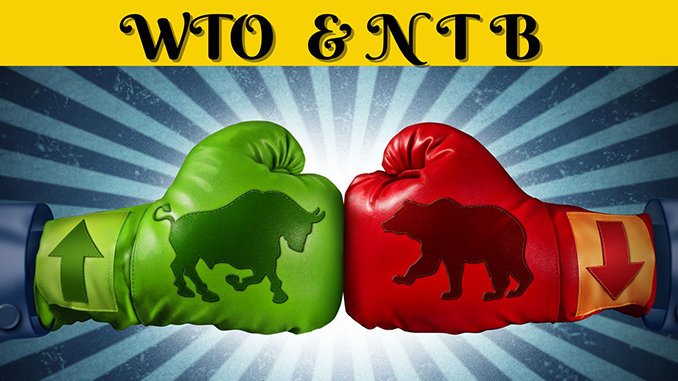
WTO & NTB
However, in our day-to-day practical dealings, we realize that trade in real life is not fair. There are a lot of non-tariff barriers that make access to markets difficult for many countries. Let's take the example of the FMCG sector. The non-tariff barriers (NTBs) can have a significant impact on fast-moving consumer goods (FMCG) businesses, as these goods are often heavily regulated and subject to various forms of NTBs. Let's see some of the non-tariff barriers that happen in FMCG businesses
Quotas: Governments may limit the amount of a particular product that can be imported, which can restrict market access for FMCG businesses or can put an additional duty on some particular origin products.
Technical barriers to trade: Regulations, standards, and testing procedures can vary widely between countries, making it difficult for FMCG businesses to comply with all the different requirements.
Sanitary and phytosanitary measures (SPS): Although we know that these measures are intended to protect human, animal, or plant life or health in a particular country, often they are used as a non-tariff barrier for trade.
Labeling and packaging requirements: Different countries may have different requirements for the labeling and packaging of FMCG products. For example, many countries ask to put labels in the local language or show/highlight some ingredients like salt/sugar, etc.
Thus, despite several efforts by WTO to have a level playing field for all nations, in reality, NTBs can increase costs, reduce efficiency and limit access to the global market for FMCG business. Time to have some new measures by WTO to give fair chance to all nations to access the global markets!#business #like #fmcg #packaging #testing #markets #language #health #globalization #wto #gatt #traders #export #exporters #importers #fmcgindustry #fmcgmarketing
